Structure, organisation, team
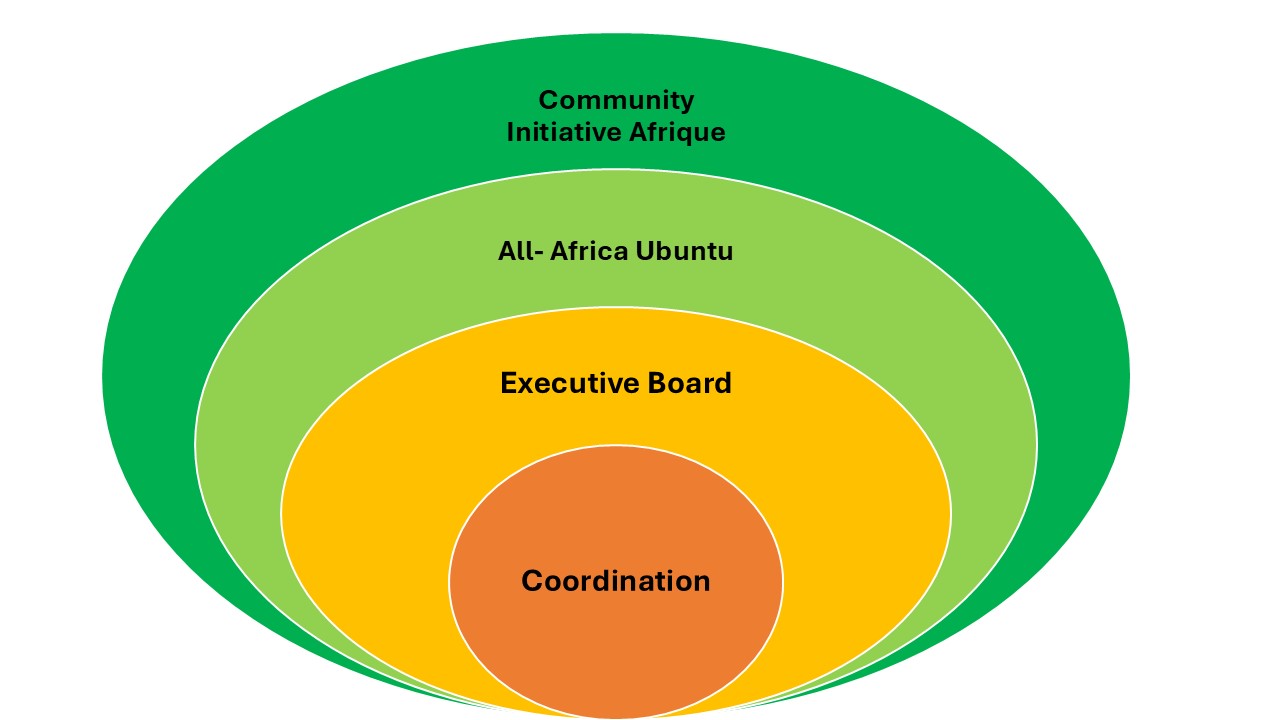
The following people make up the current team that carries out the daily work of Initiative Afrique: Djouroukoro Diallo, Kyllian Douhou and Patricia Teixidor. Each one is dedicated to different tasks.
Head and Coordination
- +41 31 684 84 92
- Djouroukoro.diallo2@unibe.ch
He graduated with a Ph.D. in Applied Linguistics from the University of Bern. He works as Head and Coordinator of Initiative Afrique at the Vice-Rectorate of Research and Innovation. He oversees the Executive Board of Initiative Afrique and is in charge of all international collaborations with African and European partners. He serves as the spokesperson for Initiative Afrique at conferences and seminars held in Switzerland and abroad.
Communication Officer
She has a Ph.D. in Primatology (University of St Andrews, UK). Her main goal is to combine her two key assets—her scientific background and over ten years of experience in the publishing world as an editor—to help scientists communicate their discoveries to the general public. As a Communication Officer, she produces podcasts, videos and content to enhance the visibility of all members of the Initiative Afrique community.
Assistant
Kyllian Douhou
- +41 31 684 51 08
- kyllian.douhou@unibe.ch
He is a student of economics at the University of Bern with an interest in global development, emerging markets, and applied data analysis. As an assistant at Initiative Afrique, he supports the project head and coordinator through streamlined administrative tasks and event organisation. He brings strong organisational, analytical, and intercultural skills to ensure impactful contributions to the initiative’s mission.
Prof. Dr. Hugues Abriel is the Vice-Rector for Research and Innovation, supervising all activities and contents of Initiative Afrique, together with Dr. Diallo.
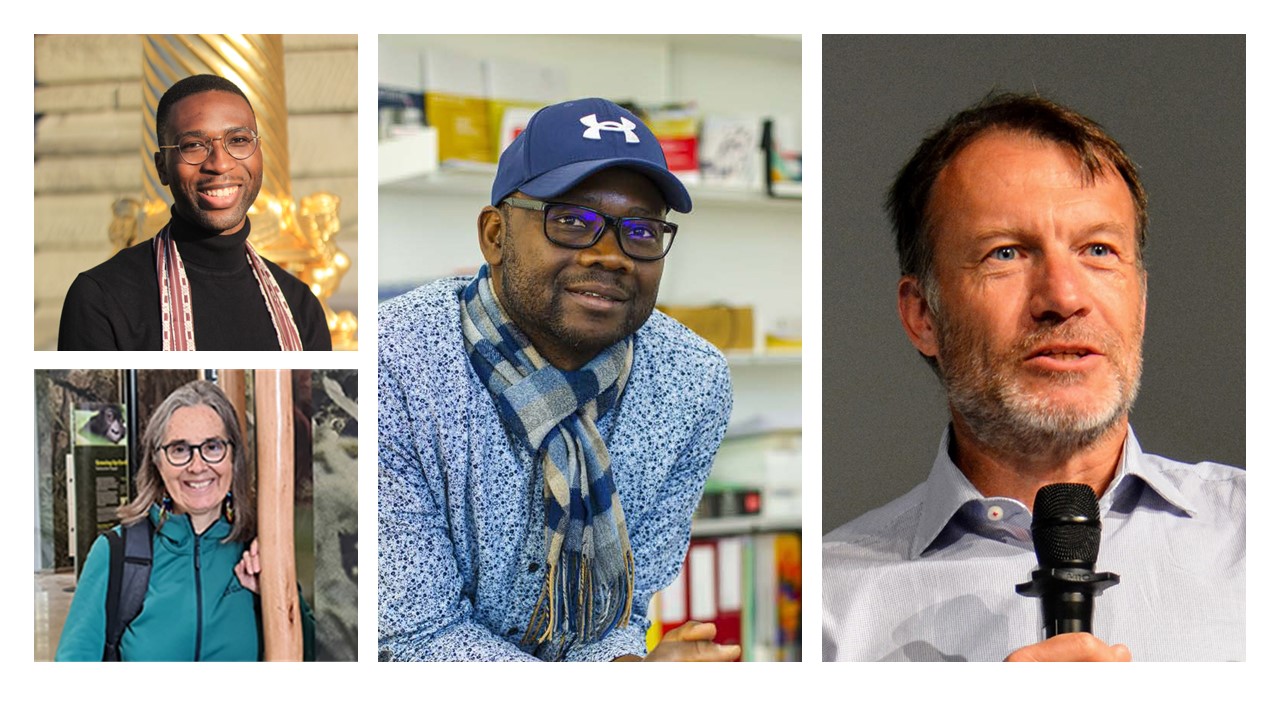
Executive Board Members
Prof. Dr. Kristina Adorjan. Department of Psychiatry and Psychotherapy, Faculty of Medicine

Kristina Adorjan in her role as Director and Full Professor of the Department of Psychiatry and Psychotherapy at the University of Bern (since February 2024), she aims to further connect the fields of medicine, economics, and politics and to improve psychiatric care, particularly in Switzerland, as well as in Low-and-Middle-Income-Countries (LMIC). She has been supporting psychiatric education and the development of research infrastructure for clinical and biological studies in Ethiopia. For her research work in Africa, she was awarded the DGPPN Prize for "Research on Mental Illnesses" in 2019. Her research focus is on studying the interaction between genetic and environmental factors in mental illnesses. In September 2024, she founded the Competence Center for Global Mental Health Research in partnership with the World Psychiatric Association (WPA) and the University of Bern. This initiative seeks to advance mental health research and education worldwide, with a special focus on LMICs. Since the fall of 2024, she has been a member of the Internationalisation Committee of the Faculty of Medicine at the University of Bern and a Board Member of the Initiative Afrique, representing the Medical Faculty of the University of Bern.
Prof. Dr. Michèle Amacker. Interdisciplinary Centre for Gender Studies (IZFG)
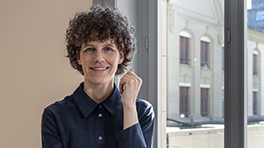
Michèle Amacker is Co-Director of the Interdisciplinary Centre for Gender Studies (IZFG) and Associate Professor of Gender Studies at the Institute of Sociology at the University of Bern. Prof. Amacker is Chair of the EDI Policy Group (former Gender Equality Commission) of the Swiss National Science Foundation (SNSF). She is also a member of the Expert Commission on Gender Equality (KFG) in the Canton of Bern and sits on the Advisory Board of the Margherita von Brentano Centre at the Free University of Berlin.
Prof. Dr. Thomas Breu. Centre for Development and Environment (CDE)
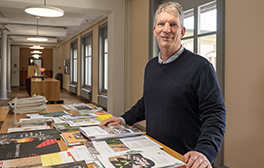
Thomas Breu is Director of the Centre for Development and Environment (CDE) at the University of Bern and Professor for Sustainable Development. In addition to leading the CDE, Thomas Breu is Executive Director of the International Graduate School (IGS) North-South on Global Change, Innovation and Sustainable Development. His work focuses on natural resource management and its implications for sustainable regional development, as well as the governance of socioecological systems in regions including Southeast Asia, East Africa, the Horn of Africa, and Central Asia. He also applies spatial analysis and modelling approaches to examine global change processes at multiple scales. His other research interests include sustainable land management issues, transnational land investments, rural development and the science-policy interface.
Dr. Djouroukoro Diallo. Center for the Study of Language and Society (CSLS)
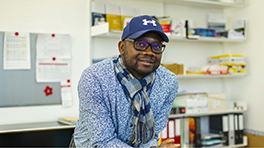
Djouroukoro Diallo holds a PhD in Applied Linguistics from the University of Bern. He works as head and coordinator of the Initiative Afrique platform at the Vice-Rectorate for Research and Innovation at the University of Bern. He is also an Associate Researcher at the Center for the Study of Language and Society (CSLS) and a Lecturer in Applied Linguistics. Dr. Diallo has extensive experience in Foreign Language Teaching in German and French. He also teaches Manding languages such as Bambara. Dr. Diallo’s research focuses on Multilingualism and Language Policy in Africa, Discourse and Media Analysis as well as Text Analysis, and Intercultural Communication. He is currently the Secretary of the Malian Society of Applied Sciences (MSAS), but he also actively contributes to several scientific organisations, including the Swiss Society for African Studies (SSAS), the Society for Intercultural German Studies (GiG), and the Edinburgh Circle on the Promotion of African Languages (ECPAL). Dr. Diallo is the editor-in-chief of the journal Language Policy in Africa (LPIA) that is published under the auspices of the ECPAL and Initiative Afrique of the University of Bern.
Prof. Dr. Salomé Dürr. Veterinary Public Health Institute, Vetsuisse Faculty
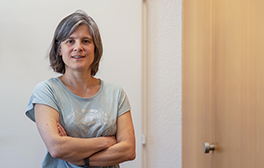
Salome Dürr is an associate professor at the University of Bern, Switzerland. She is a veterinary epidemiologist with a diploma from the European College of Veterinary Public Health. She has 20 years of research experience in the field of zoonoses epidemiology, application and theories of One Health, and infectious disease modelling. She started to work with partners from Africa in 2006 when she conducted her doctoral thesis on canine rabies in Chad. Since then, she strengthened the collaboration with researchers mainly from Chad and Uganda, but also from other African countries. Besides fruitful applied research, she also loves the way of living and the openness of people on the African continent.
Dr. Emamdeen Fohim. Center for Public Management (KPM)
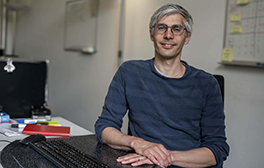
Emamdeen Fohim is a postdoctoral fellow at the KPM Center for Public Management at the University of Bern. From an organisational theory perspective, his research examines the measures that public sector organisations take to address the challenges of a constantly changing and complex environment. Using a phenomenological approach, he studies how organisational norms and practices can be modified and aligned. As a co-initiator of the ‘Centre for African Smart Public Value Governance’, he advocates for diversifying knowledge creation from non-Western perspectives and promoting equitable collaborations among scholars from various geographical contexts to establish practical insights that resonate with local contexts.
Prof. Dr. Tobias Haller. Institute of Social Anthropology, Faculty of Humanities
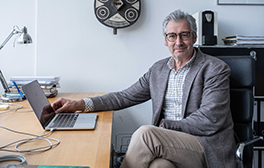
Tobias Haller is a professor at the Institute of Social Anthropology, Department of Social Anthropology and Cultural Studies (SAKS), University of Bern, Switzerland. He has specialised in ecological and economic anthropology and done research in different African countries on common property institutions as well as colonial and post-colonial land and green grabbing in the context of development projects and conservation. He is also doing research on local institution building processes and local environmental perceptions, as well as more than human relations.
Prof. Dr. Chinwe Ifejika Speranza. Institute of Geography
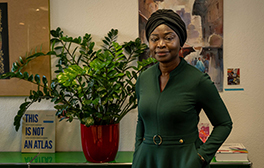
Chinwe Ifejika Speranza is a Professor of Geography and Sustainable Development at the Institute of Geography, University of Bern, Switzerland. She heads the research unit on land systems and sustainable land management. She began her studies in Nsukka, Nigeria. She obtained her PhD in geography and sustainable development in Bern, Switzerland. Her research and teaching aim to advance understanding of the interactions between land use and management, natural resources, and ecosystem functioning, as well as how to foster sustainability in land systems. She has experience working in West Africa, Kenya, Tanzania, Bolivia, Sarawak-Malaysia, Germany, and Switzerland. She serves on boards, those of the Swiss Society for African Studies and the Centre for Development and Environment (CDE), and is active in science-policy-practice platforms.
Mike Mwanga. Institute for Infectious Diseases (IFIK)
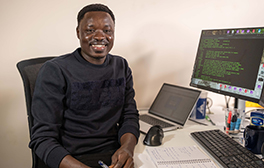
Mike Mwanga is a PhD student in the Experimental Virology group and Kelly Group at the Institute for Virology and Immunology. With a background in bioinformatics and molecular biology, his doctoral research focuses on zoonotic risk assessment of swine influenza A viruses. Mike brings extensive experience in pathogen surveillance and phylogenetics. Prior to his current role, he worked in bioinformatics with notable experience in omics analysis and programming (Python, R).
Prof. Dr. Margaret Owuor. Institute of Ecology and Evolution / Wyss Academy for Nature
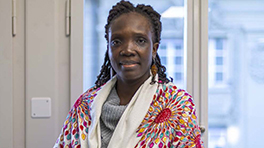
Margaret Awuor Owuor is a National Geographic Explorer and a trained science teacher. She is currently an Assistant Professor in Integrative Biodiversity Conservation Science at the Wyss Academy for Nature and the Institute of Ecology and Evolution, University of Bern. She leads a research group working on transdisciplinary studies of ecosystem services, the role of global policy in biodiversity conservation, and nature-based solutions for freshwater and arid and semi-arid ecosystem conservation. Through her training in Zoology, Botany, Ecology, Conservation, Marine and Coastal Management and Stakeholder engagement, Margaret’s central theme to research is on exploring how communities use and value ecosystems, biodiversity and their ecological functions resulting in benefits that these natural systems provide, and if this understanding of the value of nature can change perceptions and behaviour of communities and policy makers for conservation in the face of biodiversity loss and development. Her research has focused on mangroves and freshwater wetlands in Kenya and Brazil. She involves multiple stakeholders (from local community groups to Government institutions), coupled with spatial analysis of different land cover and land use and economic tools to develop choices and values of multiple ecosystems.
Prof. Dr. Isabelle Van Damme. World Trade Institute (WTI)
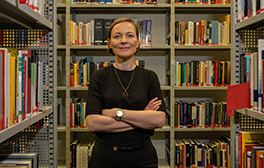
Isabelle Van Damme is a Professor of International Economic Law and Director of Studies at the World Trade Institute and the University of Bern. She is also Executive Vice-President of the Society of International Economic Law and teaches EU trade law and policy at the College of Europe in Bruges. Dr. Van Damme has represented both States and individuals before various courts and tribunals, including the CJEU, FTA panels, WTO panels, and the Appellate Body. She previously worked as a référendaire in the chambers of Advocate General Sharpston at the CJEU and was a partner at a Brussels-based law firm. Dr. Van Damme is listed among the European Union’s “Candidates for Appointment as Arbitrators and TSD Experts”.
Prof. Dr. Julie Zähringer. Centre for Development and Environment (CDE) / Wyss Academy for Nature
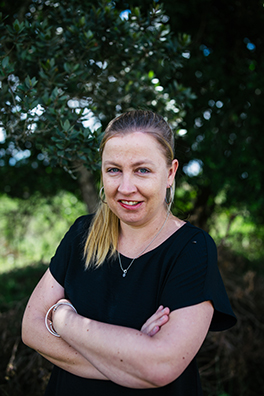
Julie G. Zähringer is a Professor of Land Systems and Sustainability Transformations at the Wyss Academy for Nature and at the Centre for Development and Environment, and the Institute of Geography at the University of Bern. She specialises in understanding the complex interlinkages between land use and land use change, ecosystem services, and human well-being. Her research is exploring the synergies and trade-offs of land use interventions (e.g. conservation, commercial agriculture, mining) and their impacts on both ecosystems and local livelihoods through spatially-explicit analysis and qualitative in-depth methods. Her work is rooted in interdisciplinary environmental studies, with a particular interest in globally-connected socio-ecological systems in least-developed countries, focusing on human-nature interactions in Madagascar, Laos, Peru and Kenya. Julie is recognised for bridging research and practice by fostering transdisciplinary collaboration and co-producing knowledge with diverse stakeholders, such as academic institutions in the Global South, local communities and Indigenous People.
